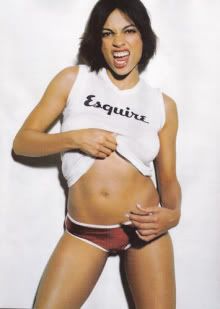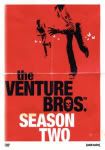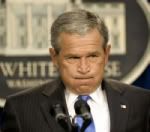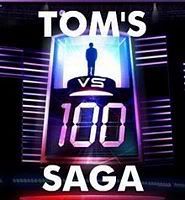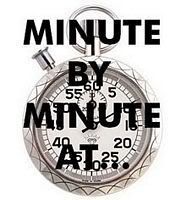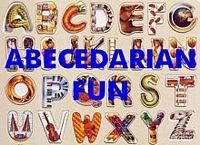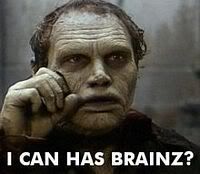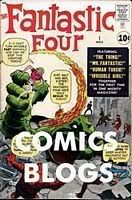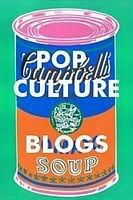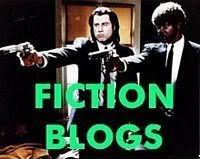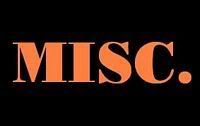COMICS: Schizo vs. Or Else
This week I picked up the new, gigantic issue of Ivan Brunetti's Schizo, and issue #3 of Kevin Huizenga's mini-comic Or Else. I've long been a fan of Brunetti's; I picked up Huizenga's book after reading favorable reviews online. Reading them back-to-back (Or Else first), I couldn't help but compare the two, and I have to say, Huizenga's work came off a very distinct loser in that match-up.
I'm not necessarily talking about the relative size or packaging of the two books, although certainly that's something worth looking at. Schizo is a huge 11" x 15", 32 pages of content (counting inside and outside covers) in full color, for $9.95. Or Else is 4.5" x 5.75", 40 pages of black & white content (plus two color pages on the inside covers), for $3.50. Schizo is imposing and impressive, a bold and weighty book to behold. Or Else has a nice cardboard stock cover, making it more durable than the usual mini-comic, and the cover is attractive, but it looks and feels disposable, which isn't what you want when you plunk down tree-fitty. I'm not sure why Huizenga went the mini-comic route instead of standard size, considering the price, and considering it's not self-published, but rather printed by Drawn and Quarterly.
With this issue of Schizo, Brunetti takes a huge leap forward from most of his previous work, which has majorly consisted of extremely sick and filthy (but extremely funny) short strips and gags. This issue consists almost entirely of single page strips, with an emphasis less on crude gags and more on crafting brief cohesive narratives. The strips fall into three basic categories: autobiographical shorts, filled with the self-loathing, depression, and rage we've come to expect from Brunetti; reflections on art and its creation; and bio-strips about artists, filmmakers, musicians, philosophers.
Brunetti doesn't just reflect on art, he experiments with it here. His style is constantly changing throughout the comic (the contents were created between 1999 and 2005, and are presented chronologically), growing cleaner and simpler as it progresses. Brunetti's line becomes razor-sharp. His characters lose their features; their arms and legs devolve into sticks in the latter strips. In the next-to-last strip in the book (a bio-strip of film producer Val Lewton), the characters have been simplified to icons, with perfectly round heads and perfect little dots for eyes. And the format of many of the strips are bold and unique; one strip is fashioned in the form of Brunetti's house; a strip on Mondrian has the panel structure and coloring of a Mondrian original; another strip, depicting the process of cartooning, is sketched in rough pencils. And the coloring throughout is striking, from white lines on a scarlet background, to monochromatic schemes, to soft pastels, to sharp-contrast black and white.
The front cover is a fantastic piece created following Charles Schulz's retirement, respectfully reflecting on the importance of Peanuts, both artistically and culturally. "Peanuts is an epic haiku," Brunetti says, drawing himself in the style of Charlie Brown. "Peanuts offers us a simple, beautiful, empathic glimpse into the human condition." It's a touching, honest, and insightful tribute. It really sets the tone for the rest of the book -- it shook my expectations of a Brunetti comic, and signaled a maturity and thoughtfulness I hadn't found in his previous work. And the remainder of the book continually surprised and delighted me, whether with an amusingly told anecdote about Harpo Marx, taken from Groucho's autobiography, or a hate-filled rant that is turned upside-down by a simple act of kindness and gratitude.
I loved this book. It's already a contender for best single comic of 2006.
Or Else, to me, shows what a fine line there is between success and failure. Huizenga covers a lot of the same ground that Brunetti does -- there are a couple of autobiographical stories, split up by a three-page adaptation of a passage from Franz Kafka's Diaries, and concluding with bizarrely out-of-context prose passages taken from various sources (such as Boys, Beauty, and Popularity Featuring Alyssa Milano, which I have to admit was pretty hilarious). But Brunetti's take on a similar kind of material felt original and vital to me; Huizenga's work strikes me as banal and insignificant.
Part of that comes with the kind of stories Huizenga is telling, concerning banal and insignificant things -- phone conversations, work anecdotes. Even the opening story, a brief look at his mother's (or the narrator's mother -- whether these strips are presented as straight autobiography or as character sketches is hard to tell) battle with cancer, comes across as pointless and uninteresting. It closes in a style that seems all-too-familiar to me from the world of indy bio-comics, a last line significant in its insignificance, as though the powerful emotions of the story won't allow Huizenga/the narrator to speak of anything of any import. "Then Mom and I watch 'The Negotiator,' with Kevin Spacey and Samuel L. Jackson, and dad falls asleep." It's a dull, empty wrap-up to a story that lacked any kind of emotional resonance it should have had.
The longest piece in the book is about Huizenga's struggle with an ethical dilemma at work: whether or not to use the phrase "Fashionably Zen" on promotional materials he's been instructed to type up. The whole dilemma is a tempest in a teapot, but I think it really illustrates Huizenga's immaturity as an artist. He truly battles with himself as to whether or not he's going to write this silly phrase or quit instead, blowing everything up to the point where he basically equates giving in on this to contributing to the destruction of the environment, and imagines some kind of connection between him and his cushy job, with its simple tasks, and the factory workers in Asia who slave over the cheap bracelets he's supposed to be selling.
There's nothing inherently wrong with examining minutiae, like Huizenga does with this story, and expanding it to encompass a larger reality; Nicholson Baker, for example, has often done so brilliantly. Brunetti does so successfully in Schizo. But Huizenga completely fails to gather me in with this story, or any of this comic book; he can't convince me that his petty workplace travails carry any weight at all. I almost wonder if he's trying to make a larger point, about the grandly inflated self-importance every individual gives to their personal experiences, but then he closes with this faux-deep insight (tying back in again with his seeming belief that his "Fashionably Zen" dilemma is destroying the world): "I have seen it with my own eyes: everything gets covered with asphalt. But I noticed at this job we all had nature pictures on our desktops." Please. Get over yourself, and grow up.

